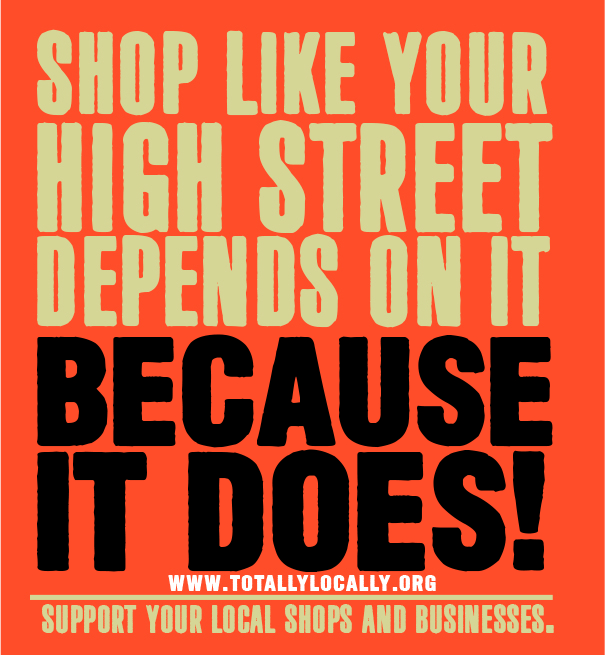A woman appeared on TV the other day and had never eaten Spinach. Another had no idea what a Swede was or what to do with it. What, I wondered, had they made of Jeremy Clarkson’s Farm? Then I thought – why would they watch it? Then I wondered what they thought when they went shopping… and that was when I remembered a report I was sent some time ago by the international law firm Withers.
In essence, the report highlighted how landlords needed to rethink their High Street portfolios, by either selling them back to their communities or by working with the local communities to create more homes and different types of retail spaces. We had already been suggesting in client briefings that the c1980s High Street was not only dying – it had become the stuff of Dead Parrot sketches. Chinese tourists in Bicester Outlet Centre, when permitted, might have regarded the “streets” there as an emulation of a gracious time in English shopping. But the reality, now set in concrete thanks to Covid, is that the Internet and Amazon had already choked the life out of it ten years ago; spiralling rates and rents and the wide availability of 247 retail research and access through smartphones, prepared the shroud; and finally, Covid-19 and Putin’s literal power grab, popped the already extinct concept into a box, with the risk of the site remaining unmarked.
Councillors keen to garner votes and their Civil Servants, keen to maintain the status quo as regards pensions, personal lifestyles and Doreen’s annual Seychelles vacation, have colluded to employ swathes of friends advisors who have quickly developed an industry providing local authorities with “robust” and “sustainable” and “legacy” proposals that will enshrine the High Street. Their plans promise to deliver a High Street reminiscent of a time when it was difficult to visit a shop, for the number of delivery horses and carts trying to restock the butcher, the baker, the bootmaker, the glovemaker, and the candlestick maker.
But it’s a myth, and until we collectively rethink what we – the public – should expect and balance it with what it is reasonable for us to expect,we are unlikely to see any change of consequence?
Town planning, Woke politics, and a raft of “Green policies” that damage rather than heal have all contributed to the High Street problem as well. The nonsense of under-used bus lanes, cycle lanes, ULEZ and traffic-congesting NTZs, have simply made matters worse or perhaps at best, moved the problem into someone else’s political department. Appalling congestion, resulting fumes, ever-increasing rates, spiralling energy costs and the resulting loss-making shops ensure that Home Delivery is the only option. HGV drivers haven’t stopped driving lorries and delivering food and supplies overnight – they’re simply working better hours for Amazon and Evri.
So thanks, in generic terms, to the Internet and instant access and easy, low-cost payments systems, we can demand and get everything, (let’s call it E to save typing), but we want E to be cheap, and E to be available now…. but what if E isn’t either?
What happens when a super-king cargo ship blocks the Panama Canal; when there aren’t enough Lorry drivers to clear the ports and supply the supermarkets; when you refuse to pay a farmer properly for chicken or bacon; when UK producers can’t afford to heat a polytunnel? What happens when the nation couldn’t be bothered to do, to grow, to build, to help? What happens when societally the nation spends more time on promoting its personal moral superiority across the social media platforms, but fails to build, create, invent, engineer anything substantial? Perhaps – and I hesitate to suggest this – our sense of entitlement is misplaced?
By way of example, we were told or perhaps we demanded, that we had to have access to cheaper meat. We could import meat very cheaply from Europe, (where not everyone necessarily followed the right rules), and to help that unthinking process the UK reduced the number of abattoirs from 3326 in 1960 to 156 in 2020. Our consumption went up, and our population went up, so we thought Big Business must build Giant mega meat factories – and it will be OK if they are 66% operated by underpaid migrants. Then, when the moment came that we had No Carbon Dioxide, no petrol, no HGV, and no cheap labour… we tried to blame Brexit, instead of us. Instead of fixing the problem and supporting the wider countryside and small towns by allowing the development of more regional abattoirs with skilled workers on a mixture of part and full-time flexible workloads, we simply stuck our heads in the sand.
If you don’t care about meat, then think about the massive megadairies, which have replaced the chains of smaller producers that used to exist. In these giant barns, dairy cattle are being fed low-cost soya, grown in places like Brazil’s endangered Ecoregions. Accelerated deforestation, poor animal husbandry, the destruction of another farming segment so that you can have 4 pints of milk for £1.15. But, as was recently pointed out, Brazil has a drought so there is no soya, so they have cut down more trees somewhere else, but while the Soya grows where the water can be sucked up for the wrong reason, and the result in the UK means that in a country where we have the ideal conditions for a successful dairy industry, our Milk, Cheese, Cream, Butter and the rest of the UK’s milk dependent production lines, may simply stop, or become hugely expensive.
Then Putin went to war, and our concepts of real power changed.
The globalisation of our supply chain, which gives us E now (when it works), and Cheap Food (when it’s available), somehow prevents us from simply trying to change or improve the supply chain. The Conservatives, Putin, fossil fuel availability, and global economics have managed to unwittingly conspire in the fourth biggest global economic downturn since 1900, which makes every one of the issues I have suggested above a great deal worse.
Now then is the time to start thinking about your choices. And we do still have a choice. Ensure it is produced locally, ensure it is produced ethically; ensure it is sustainable. Try to make it yourself – start with one lunch a week with the children, or one Friday night supper. Start to think about going to Charity shops – the only retailers who get a rates break – and not getting rid of your old tech this year if it’s still working. Go and watch the local footy team or town rugby club. Go on – Go local.

